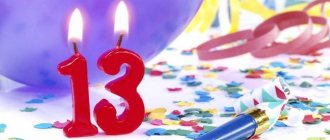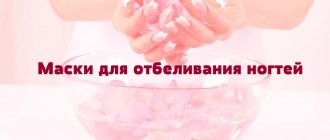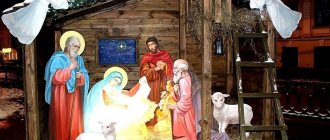Home / Esoterics
Share on Facebook VKontakte Twitter Odnoklassniki
The spring holiday, without exaggeration, everyone's favorite holiday, Easter, is approaching. Surprisingly, it is celebrated not only by deeply religious people, but even by those who are completely far from religion. And all because in the air you really feel the spirit of something bright and magical.
Source: infoniac.ru
People prepare for Easter long before it arrives. However, do we know everything about this amazing day? Yes, perhaps most of us have repeatedly heard the history of the holiday, and also that there should be delicious Easter cakes, Easter cakes and decorated eggs on the festive table.
What else do you need to know in order to properly meet and celebrate the bright day of Christ’s Resurrection? Let's clarify what can and cannot be done on Easter, as well as on the eve of this great holiday?
Palm Sunday
Let's start with Palm Sunday. Surely, all believers know that Palm Sunday is considered the moment of Jesus Christ’s entry into the city of Jerusalem.
This day is celebrated exactly a week before Easter. Therefore, as for Easter, the date of Palm Sunday will be different every year. In 2018, Palm Sunday falls on April 1st.
On this day, it is customary for believers to bring into the house the symbol of this holiday - willow branches. They became the main attribute of Palm Sunday.
While attending a church service, willow branches are blessed, after which they are taken into the house and also given to relatives and friends. Blessed willow branches replace the palm branches with which the crowd greeted Christ's entry into Jerusalem on the eve of his crucifixion.
According to the biblical story, Jesus rode into the city on a donkey and was met there by people holding palm branches (in those days they were associated with healing).
It should be noted that this day is very important for Catholics.
They have such a holiday called Palm Sunday. As mentioned above, in the Orthodox religion the palm tree was replaced by the willow. However, that same ancient symbolism has been preserved. Indeed, in our culture, it is this willow that is credited with healing properties and magical powers.
Believers know that the consecrated willow has special magic: it protects the home from various natural disasters, for example, fires and floods, and protects all family members from illnesses and various troubles.
However, of course, the branch itself will not work. It is also important to remember a number of rules that must be followed.
What not to do on Palm Sunday
So, remember that you cannot break prohibitions on Palm Sunday. To spend this day decently and correctly, as well as to celebrate Easter with dignity, you need to adhere to some recommendations. Here are the most important of them:
– On Palm Sunday you need to forget about any kind of work. It is forbidden to work physically: postpone cleaning, cooking, sewing, knitting until later. This is a holiday like many other religious holidays. Therefore, it is not recommended to work on this day.
-Also avoid visiting entertainment venues, such as bars and nightclubs. This day should be celebrated peacefully and quietly with family.
-On Palm Sunday you also need to adhere to the menu prescribed for Lent.
-You should take care of the menu for the holiday table in advance. As mentioned earlier, on this day it is recommended to give up physical work, including kitchen chores. First of all, this concerns the preparation of hot dishes.
- Alcohol consumption is strictly prohibited. Still, you need to remember that this is a church holiday, you shouldn’t turn it into a lush feast, as well as another reason to get drunk.
-On this day you cannot swear, or refuse to help someone. If you are asked for something, try to do a good deed.
-In addition, there is another strange recommendation for modern people: you should not comb your hair on Palm Sunday.
What to do on Palm Sunday
But in order to forget about headaches forever, there is a wonderful remedy that our grandmothers and great-grandmothers resorted to: you need to comb your hair, then immerse 2-3 hairs or the comb itself in water.
On a holiday, the willow should be watered with this water. At the same time, do not forget to pronounce the following magic words: “Water, pour on the ground along with the headache.”
So, as already mentioned, the main event on Palm Sunday is the blessing of willow branches.
Then, after the morning church service, the branches are brought into the house so that they protect your home, as well as all household members, from various potential troubles and possible dangers.
There is another very interesting tradition: you need to lightly hit each other with blessed branches and at the same time pronounce the phrase out loud: “I’m not hitting, it’s the willow that’s hitting!” The willow whips - it hits you to tears!”
It is believed that if a twig touches you, it will certainly protect you from damage and the evil eye.
Even the buds of consecrated willow have a special healing effect. Since ancient times, kidneys have found excellent use in folk medicine.
According to traditional healers, willow buds help increase male potency. They also treat female infertility and also promote rapid pregnancy.
A child was also bathed in the decoction if he showed signs of illness, and sick pets were treated with the same decoction. This is a remedy that is widely used in modern medicine.
So, it is recommended to spend Palm Sunday with your family. Believers bless willow twigs. Custom requires that the branches be picked early that day before the sun rises.
As for the dishes on the festive table, you need to remember that now is the time of Lent, and, based on this, it is worth considering the menu.
But on Palm Sunday, you can still make an exception to the rules and introduce fish dishes, and also allow yourself to drink a little red wine.
In addition, on this day it is possible and even recommended to replant home flowers. If you believe folk omens, a houseplant transplanted on Palm Sunday will grow and bloom, and household members will soon experience financial well-being.
But if the plant dries out and its leaves fall off, financial difficulties are most likely just around the corner.
Holy Week
The last week before Easter is considered Holy. This week is also called Holy Week.
However, it is worth remembering that Holy Week at different times had many other names - Red, Red, Great, Holy Week.
It is Holy Week that is considered the time preceding the crucifixion of Christ. This is a week of active preparation for the holiday of Holy Easter. Housewives begin to decorate their homes with original decor, get the most interesting recipes for dishes and, of course, actively bake Easter cakes.
Each of the seven days of the week before Easter is of particular importance for believers. On each of these days, certain traditions were observed in Rus'.
First of all, it is worth noting that you must continue to fast throughout Holy Week. This means not eating meat, fish or dairy products. Eggs and butter are also included in the food ban.
In addition, any kind of recreational activity is prohibited during Holy Week. This week you should not sing, dance, it is best to attend church services. This way you cleanse your soul as much as possible before the onset of Easter.
Remember that the last week before the holiday is the most important period.
To celebrate Easter with dignity, you need to avoid committing bad deeds and prevent the emergence of negative thoughts and desires. Try to control yourself so as not to even think about something bad. Envy, indifference, anger and vanity - all these feelings can corrode our soul, thereby bringing us great harm.
As mentioned above, it is advisable to avoid noisy entertainment events. Avoid parties and holidays, as well as laughing too loudly. It should be remembered that Holy Week is a period of great tribulation.
What not to do and what to do during Holy Week
Try to help those who need your help. Take care of the sick, the poor and the needy. Holy Week is a period of repentance, as well as doing good deeds.
Believers simultaneously cleanse their souls and also pay attention to transforming their home: they try to put it in order, paint something here and there, whitewash it, update it, and add new decorations.
In addition, the products that will be present on the festive table are prepared in advance. First of all, these are Easter cakes and colored eggs.
Holy Monday
The first day of Holy Week is Maundy Monday.
In Rus', on this day it was customary to restore order and do general cleaning. As a rule, housewives took up the cleaning, swept out all the garbage, and cleaned the inside of the room. The men were repairing the outside of the house.
It is on Holy Monday that it is recommended to rid your home of unnecessary things. The house is cleared of old things that will no longer be used by the owner, and the women also do a lot of laundry.
On this day, it is recommended to eat fresh vegetables and fruits, as well as bread, honey and nuts.
Holy Tuesday
On Maundy Tuesday, all believers remember how Christ exposed the Pharisees and scribes.
On this day it is also customary to pay tribute to the memory of Patriarch Thomas of Constantinople. In the old days in Rus', on Holy Tuesday it was customary to prepare potions for various diseases. It was believed that it was Saint Thomas who drove away fevers and other diseases.
Nowadays, modern housewives on this day buy the products necessary to celebrate Easter.
Those who believe in the power of healing infusions today, just like their ancestors, prepare various healing potions.
As on Good Monday, it is allowed to eat raw vegetables, fruits, as well as honey and nuts. Do not forget that Lent continues. In addition, it is recommended to eat only in the evening.
Holy Wednesday
Cleaning of the premises continues on Wednesday. On this day, housewives clean the rooms, wash the floors until they shine, beat out rugs and rugs. It is recommended to complete the cleaning that has started.
On Holy Wednesday in Rus', a special ritual was performed to ward off all kinds of ailments and illnesses.
Believers scooped up a jug of water from a well, some took it from a river or barrels stored in cellars. Then, according to the Orthodox tradition, they were baptized three times, after which they covered the container with water with a clean or new towel.
At exactly 2 o'clock in the morning, the believers were baptized again three times, then poured this water over themselves, leaving some water at the bottom. Then clean clothes were put on the wet body (it was not dried with a towel), and the remaining water had to be watered with house plants or bushes in the garden until 3 a.m.
It was believed that a body washed in this way was renewed, and after such a ritual a person felt as if reborn.
Holy Wednesday is associated with the repentance of the sinner. Surely, every believer knows the story of when a sinner washed Jesus’ feet with her tears and then anointed them with precious ointment.
In Rus' they sincerely believed that it was in this environment that evil spirits were especially rampant. Therefore, women tried to ensure that their behavior was particularly strict and decency. On Holy Wednesday it was forbidden to do handicrafts.
In addition, dry eating continues on this day. It is also recommended to eat vegetables, fruits, bread and nuts. Don't forget that you can't eat oil this week.
Maundy Thursday
Well, and, of course, Thursday was considered a special day this week, which was popularly called Maundy Thursday.
Maundy Thursday is, first of all, associated with the Last Supper, which Christ attended and where he established the sacrament of the Eucharist. We are talking about Holy Communion. Jesus washed the feet of his disciples, thereby showing an example of the greatest humility and great love for them.
People also remember the story of the betrayal of the son of God by the apostle Judas Iscariot. He committed his famous betrayal for only 30 pieces of silver.
For modern people, Maundy Thursday is, first of all, a day of purity. On this day, it is customary to wake up before sunrise, wash your face, take a bath, finish cleaning your home, and also start preparing Easter treats. Housewives begin to paint eggs, bake Easter cakes, and prepare other traditional dishes.
However, we should not forget that, despite the fact that dishes for the festive table are beginning to be prepared, Lent is still ongoing. Therefore, believers can eat the same raw vegetables and fruits, bread, and also drink water.
As already mentioned, the morning should begin with water procedures: it is recommended to take a shower or bath in the morning, since it is at this time of day that water is endowed with special healing powers. It will get rid of diseases, bring health and good luck to the person who decides to undergo morning procedures.
After taking a bath on Maundy Thursday, you must wear new or clean clothes.
It's also important to remember that this Thursday is the last day of your big home cleaning. After Maundy Thursday, it is no longer recommended to clean until next week.
And another very important point that also needs to be taken into account: starting from Thursday, nothing can be taken out of the house. It is not recommended to give anything away, from minor things to borrowed money.
Good Friday
Good Friday is another special day. This is a day of mourning for the Son of God. According to biblical tradition, it was on this day that Christ was betrayed and crucified on Golgotha.
Through martyrdom, the Savior of all mankind atoned for our sins. On this day you need to give up work; it is recommended to spend it in prayer and reading biblical stories.
There is a belief that if any illness happens on this day, it will go away very quickly and the person will definitely be cured. And even the most serious problem will soon be easily solved. After all, this day is special.
According to believers, on this day people are “helped by angels.” On Friday in Rus' it was believed that ash taken on the Friday before Easter had magical powers and could cure many serious diseases, such as alcoholism, epilepsy, the effect of the evil eye, as well as depression.
As for food, on Good Friday it is recommended to abstain from any food at all. However, those who find it difficult to completely give up food can eat some bread with water. This is allowed, since not everyone can withstand one day without food.
From time immemorial, it was strictly forbidden to work on Good Friday. There was a popular phrase among people: “a bird does not build a nest.”
Holy Saturday
Holy Saturday is the eve of Holy Easter. On this day, believers remember the time when the body of Christ was in the tomb.
On Saturday you are allowed to finish all the tasks that you did not manage to finish during the week. This is the day when you can still paint eggs, as well as cook other dishes that will later end up on the festive table.
On this day, believers bring colored eggs to church to be blessed, as well as ready-made Easter cakes and Easter cakes. Of course, any kind of work must be completed by the onset of Sunday.
Temples and churches hold services where Easter cakes and eggs are blessed. And in the homeland of Christ in Jerusalem, thousands of believers watch the ceremony of the descent of the Holy Fire.
Everything you need to know about Easter: What you can and cannot do, signs, traditions and customs
A painted egg (previously there were only red eggs) is a symbol of the world, stained with the blood of Jesus Christ and through this being reborn to new life.
Photo: April 14, 2020, 11:07
Christians are preparing to celebrate the main holiday - the Resurrection of Christ, which this year is celebrated on April 16. Easter cakes, krashenki - Easter traditions are passed down from generation to generation.
history of the holiday
Christ was executed just the day before on Friday, so the days of Easter and Resurrection almost coincided. These are two different holidays, but over time the boundaries in the names have blurred. Other languages have retained this difference.
In many beliefs, including those of the ancient Jews, the symbolic celebration of Easter in these distant times was the most important event.
The word Passover comes from the Hebrew language and is translated as “exodus, deliverance, liberation.”
At first, the holiday symbolized the miraculous liberation of the Jewish people from slavery. On this day, matzah was prepared, the ceremonial slaughter of a lamb was performed, and primordial livestock traditions reminded of the turning of the sun for summer.
In Rus', the celebration of great Christian holidays was inextricably linked with ancient pagan traditions.
The people, accustomed to polytheism, did not immediately convert to the new faith, so the introduction of a new Christian culture proceeded by superimposing new traditions of faith on the age-old familiar features of the religious beliefs of the population of Rus'.
Only the rooting of Orthodoxy gave a strong understanding of Easter as a holiday of feasts. Even in close religions, Catholic and Orthodox, there are different attitudes towards the choice of the main holiday.
Catholics prioritize the coming of Jesus into our world and consider Christmas to be the most important holiday, while Orthodoxy prioritizes Easter - the sacrifice, atonement and resurrection of Jesus for the sins of mere mortals.
Data
It has long been believed that this day has special properties, and conspiracies read on the Resurrection of Christ have enormous power. On Easter they asked for strength and health, drove away quarrels and troubles, removed the evil eye, attracted suitors and even drove out cockroaches and bedbugs.
To calculate the day of Easter, special calendars are used - Easter. The complex calculation system is based on the lunar and solar calendars, but... solar calendars are different (Julian and Gregorian), the date of celebration of Christian Easter among Catholics and Orthodox Christians often differs. But it is known that depending on the lunar calendar for a particular year, the holiday falls on the period from April 4 to May 8.
Easter celebrations began with a procession of the cross, when a procession of parishioners led by clergy left the church and walked around it, and then returned to the church threshold; here the priest announced the Resurrection of Christ, after which the people returned to the temple, where the festive service continued.
The Easter service begins at midnight from Saturday to Sunday; she is all filled with spiritual joy and jubilation. All of it is a solemn hymn to the Bright Resurrection of Christ, the reconciliation of God and man, the victory of life over death. On Easter, the breaking of the fast begins after a long period of Lent, and the main attributes of the festive table are colored eggs, Easter cake and Easter (a sweet dish made from cottage cheese with raisins). A painted egg (previously there were only red eggs) is a symbol of the world, stained with the blood of Jesus Christ and through this being reborn to new life. Kulich (tall bread made from butter dough) is a symbol of the body of the Lord, which believers should partake of. By the way, all this Easter food is blessed in the church the day before - on Holy Saturday.
The last week before Easter (week) is Holy.
On Monday you need to put things in order in your house: paint something, repair something. In the old days, peasants went out early in the morning on this day and watched what the day would be like. If the sky was clear, and the sun seemed to be playing in the sky, then the summer will be good and fruitful. All weddings that will take place this year will be happy. On this day, knowledgeable people always washed themselves with gold and silver in order to preserve their youth and financial well-being for a long time.
It is customary to prepare festive clothes for Easter Sunday on Tuesday. On the same day you can continue cleaning, you can organize laundry. Groceries are being purchased for Easter. Women prepare medicinal infusions. Men should not even touch herbs, tinctures, powders.
It is customary to carry out general cleaning of the house on Wednesday. This is the day of washing and all sorts of wiping. On Wednesday, it is advisable to thoroughly wash, scrub the floors, and beat out the carpets. And you can continue on Maundy Thursday. It’s not for nothing that the next day of the week is called Maundy Thursday. Whoever has dirt in his house on this day will live in dirt all year.
On Wednesday of Holy Week, a special ritual against any bodily illness was remembered. You had to use a mug to scoop up water from a well or from a barrel on the street, or get water from a river. They doused yourself with this water at 2 a.m., leaving some in the mug. Afterwards, clothes were put on the wet body without drying, and the remaining water was poured onto a bush or flowers. They say that a body washed in this way is reborn.
On Maundy Thursday you need to bring a passionate candle from church, which will help in the treatment of various diseases. On the same day you can prepare Thursday salt. To do this, ordinary salt in a canvas bag is placed in a stove or oven for 10 minutes, and then it is consecrated in the church. Thursday salt has excellent healing properties. It is used throughout the year. With the help of this salt you can then help establish peace in the family, get rid of damage, and make amulets to protect against evil spirits. Thursday salt is used to cleanse homes of negative energy and treat objects and gifts if there is a suspicion that they contain negativity.
On this day, housewives prepare pysanky (or painted eggs), krashenka (painted eggs) and a cottage cheese dish called Easter. The appearance of Easter cottage cheese on the festive table is also not a coincidence. Since ancient times, milk (and dairy products) along with bread (Kulich) have been considered sacred, sacred food.
On Good Friday, you need to buy as many candles as possible from the church and burn them in every room throughout the day. On this day, when Christ was crucified, suffered and died on the cross, they do not eat food. Church traditions say that on Friday, when Christ was crucified, Christians should not eat food. Easter cakes are baked on the same day. Before you get to work, you need to read “Our Father”, and after saying: “Lord, bless,” you need to start baking Easter cakes.
Saturday is a day of mourning, when all believers mourn for the Savior. It is contraindicated to have fun, drink alcohol, or have an intimate relationship.
The last (quiet) tidy. You can also paint eggs. On this day, common holiday dishes are prepared.
On Saturday they brought colored eggs, Easter cakes, Easter cakes and other items to church to be blessed. And before going to the service on Easter night, they left a treat on the table so that later they could break their fast. True, they ate little by little - only symbolically, after which they went to bed. But late on Sunday morning the real feast began, which lasted all week.
The next day comes Easter. The holiday is called the wonderful Resurrection of our Lord Jesus Christ.
The morning begins with breaking the fast. First they eat the blessed Easter cake, eggs, and ham, then it’s time for other dishes. You cannot get drunk on this day: “If you get drunk while breaking your fast, you will walk around half asleep all year, so God will punish you.”
At Easter, you should definitely visit your parents and godparents if you haven’t seen them for a long time or live separately from them.
Do's and Don'ts for Easter
Since ancient times, this holiday has been treated with special reverence. For a long time, people began to prepare for Easter, starting with Lent. A person must celebrate this holiday in a special way, and, in addition to numerous traditions and rituals, there were also some prohibitions.
First of all, all work was prohibited. After all, this is a holy day that must be completely devoted to spiritual enlightenment and good deeds. And fuss will only distract from this. However, as with all rules, there are exceptions for those who care for infirm and sick relatives.
For a long time, many people have been going to the cemetery on Easter. However, according to Orthodox laws, this is not the day when you need to remember the dead. There is a separate holiday for commemorating deceased relatives, which falls on Tuesday a week after Easter.
Easter is also a symbol of spiritual cleansing and enlightenment, so all carnal pleasures should not be present on this day. If you have a wedding scheduled for the days before Easter or on Easter, then it is better to postpone it to another time.
Why are eggs painted for Easter?
Many people probably have the question more than once: “why do they paint eggs for Easter?” This tradition of the holiday called Great Easter is associated with the name of Mary Magdalene, who preached about the resurrection of Christ before Tiberius, and gave him eggs with the call “Christ is Risen.” Emperor Tiberius doubted this statement and said that it was difficult to believe, as well as the fact that the egg could turn red. And at that same moment the following happened. The White Egg turned bright red. So, on Easter it has become a tradition to paint eggs. And the red egg became a symbol of the Resurrection of Christ. If you want the eggs you donated to be like a work of art, then you can use the services of professional artists. It is customary to paint eggs on Easter, however, this is not the only tradition of the holiday.
Traditions for Easter
The ancestors celebrated this day especially joyfully with festivities and various fun activities. Every evening throughout the week of Easter the entire village gathered to celebrate this holiday.
Every evening all week, our ancestors read prayers and sang songs. They hoped that God would then protect them from troubles and misfortunes.
As already mentioned, creating a family and indulging in carnal pleasures is prohibited on this day. Still, there was a tradition of organizing a viewing party for Easter.
Unmarried girls were dressed up in the most beautiful outfits and played bacha. The girl took a painted stick and hit the figure that was lying on the ground, making special efforts. And the guys watched and chose the best one.
Signs for Easter
Whoever sees the sunrise on Easter first will not know troubles all year.
It was considered a bad omen to oversleep the morning service on Easter - this prophesied failure.
To get rid of troubles, bad luck and quarrels, you need to burn a cross on the door frame with an Easter candle.
Candles bought for Easter in the church were kept all year - they were used to bless the young, place them near the seriously ill, and use them to drive out evil spirits from houses. The remains of wax from Easter candles were stored until the next Easter - according to popular belief, this served as a talisman for the house against fire, and for the family against curses.
If your child is capricious and whiny, parents should definitely go to church on Easter to atone for their sins.
If a child was born on Easter Sunday, then he will become a famous, famous person. Anyone born on Easter week will have good health. Great people, who can even change the course of history, are born not just on Easter Sunday, but also at noon and with a shirt on.
The willow brought during Palm Week was used to fan the children's room, thereby driving out misfortunes and illnesses.
And so that there is peace and harmony in the family and no one quarrels with each other, the Easter meal must begin with the whole family and everyone must first of all eat a piece of Easter cake and eggs that were blessed in the church.
A woman who is having trouble getting pregnant should put an extra plate next to her on Easter, put a piece of Easter on it with the words: “Kulich for the kids!” After the meal, this piece was crumbled to the birds.
There was a tradition for older people to comb their hair, saying the wish that they have as many grandchildren as there are hairs on their heads.
Death on Easter is a special sign. A person who died on this day is marked by God. His soul will immediately rush to heaven, to the holy saints. The deceased is buried with a red testicle in his right hand.
Christians believed that Easter dishes, consecrated by prayer, have enormous power and can help in difficult times. The housewives hid all the food at night so that not a single mouse could get to it. There was a belief: if a mouse eats a consecrated piece, it will grow wings and turn into a bat. And bones from the Easter table were buried next to arable land or thrown into the fire during a thunderstorm to avoid thunder strikes. The head of the blessed Easter cake was also preserved. Only during sowing did the peasant take it to the field and eat it in the field. This should have ensured a bountiful harvest.
The Easter table should be decorated to its glory, then the heavens will rejoice for the holiday of Easter. You cannot eat an egg and throw the shell out the window onto the street.
If you scoop up water from a spring or river on Easter night, then, according to popular belief, it will have special power.
You can lure the groom in church on Easter during the service. When the priest says “Christ is Risen!” you need to quickly whisper: “Resurrection of Christ, send me a single guy as my groom!” “The Resurrection of Christ! Send me a single groom, in stockings and little shorts!” or “God grant a good groom, in boots and galoshes, not on a cow, but on a horse!”
To look younger and get richer, older women also washed themselves using dishes in which they placed a colored egg and coins, that is, they washed themselves “with gold, silver and a red egg.”
So that no one can jinx a child for a whole year, you need to cross him with an Easter egg on Easter and say: “Just as no one ever marries this egg, so no one ever marries (the name of the child”). You need to give this testicle to the child to kiss.
If you are constantly experiencing difficulties with money, be sure to give a coin to a beggar at Easter - you will not know the need for the whole year.
If during Easter week you saw a deceased relative in a dream, this means that next year no one in the family will become seriously ill or die.
On Easter and throughout the week following it, the church did not marry newlyweds - being distracted by worldly holidays was considered a great sin.
It’s good to go on a swing on Easter (and throughout Easter week). This is a ritual of fanning. They say it blows away all sins.
When the bells ring on Easter, you must whisper three times: “Christ has risen, and my family has health, my house has wealth, my field has a harvest. Amen". Then the year will be successful.
A husband and wife must hit colored eggs against each other at breakfast on Easter Sunday; the one whose egg does not break will be the “head” of the family all year.
Painted eggs were exchanged when meeting, and fortunes were guessed from by them, breaking the shell in a certain way. The egg had to be rolled on the table. Good luck in games with eggs promised well-being in the family.
This night, lamps or candles must be lit in the red corner of the houses. Candles are also lit on the graves of deceased relatives. Fire, candles, bonfires are indispensable attributes of Orthodox Easter: the apostles warmed themselves by the fire in the Garden of Gethsemane when it was Christ’s last night.
According to legend, from the first day of Easter until the Ascension, Christ and the Apostle wander the earth in beggar’s rags and experience human mercy. The good are rewarded and the evil are punished.
And of course, everyone around them congratulated each other with the words on their lips: “Christ is Risen!”, and in response they heard: “Truly He is Risen!”, kissed the cheek three times and exchanged Easter gifts.
Spouses must christen themselves so that no one can see, otherwise it will lead to separation. Children must be kissed three times.
There is another interesting Easter ritual. He is associated with the Easter singers who walked through the villages on the second and third days of Easter. The musicians went around all the houses in the village and sang in front of each house, praising the owner and his family members, wishing them fruitful work, a good harvest, and more livestock.
In response, the owners thanked the singers and gave them gifts: colored eggs, sausages, cheese, and rolls. Performing this ritual was believed to promote the harvest, the well-being of the family, and protect against various adversities.
In the folk calendar, the upcoming weather was determined by Easter
Thunderstorm on Easter - for late and dry autumn.
If there is frost or thunder on the first day of Easter, it means a good harvest.
If it rains on the first day of Easter, it means a rainy spring and a good rye harvest.
If it rains during the week, there will be a good wheat harvest.
If the weather is cold on the second day of Easter, then the summer will be dry.
If the weather is clear on the second day after Easter, then summer, on the contrary, will be rainy.
If it rains on Easter, then spring will also be rainy.
If it was warm and clear on Easter, then the summer will be sunny and the harvest will be good.
A starry night on Easter means frost.
By Easter all the snow had melted away - for a good harvest.
At Easter the sky is gloomy - summer will be cold and cloudy.
There is also such a sign: if a dog barks to the east during Easter Matins - to the fire, to the west - to misfortune.
Signs on Good Friday
It is strongly not recommended to start fortune telling on Good Friday, the day of the death of Christ. It is also better to refrain from using love spells from other magical rituals on this day. However, there are many folk signs associated with this day that can be useful in our time.
Breaking a saucer on Good Friday is a lucky omen.
Using pitchforks or shovels on this day can lead to disaster.
Babies who are weaned on Good Friday should grow up strong and robust.
The clothes you wash on Good Friday will never be washed clean.
Sources: ysia.ru, www.calend.ru, selomoty.ru, etc.
Photo: selomoty.ru
More news in the Telegram channel “zakon.kz”. Subscribe!
report a bug
Report a bug 4853810-3707d46c32aea984c30fa0ed6e2b908c
What to do on Easter
How to spend this day with dignity? After all, Holy Easter is a special day not only for believers, but also for those who are quite far from religion.
All we can do on this day is to rejoice, treat our family and friends, invite them to visit us, and also pay visits to those who are much worse off than you these days in order to try to help them.
On Easter you can eat any food and drink wine. However, this should be done in moderation. Moderation is the main rule of any feast, and not just Easter.
If you have a normal relationship with alcohol, then you can afford to drink it in small quantities. However, if you know you won't be able to stop, it's better to give it up completely. After all, on the holiday of Holy Easter, being drunk is a great sin.
Remember that fun should be more spiritual than physical.
How to prepare for Easter
Believers begin to prepare for the holiday in advance, observing a 40-day fast (the number of days Jesus spent in the desert).
The final week of fasting is called Holy Week; each day is filled with a special meaning and is called Great Week . During this period, even those who did not observe restrictions in the previous days often fast.
*click on the picture to open it full size in a new window
According to the church charter, from Holy Monday to Thursday, vegetables, fruits, and bread remain in the diet. On Friday they do not eat food - as a sign of sorrow, because Jesus was crucified on this day. On Saturday, food with the addition of vegetable oil is allowed.
All dietary restrictions during Holy Week must be taken taking into account your state of health and lifestyle. What is prescribed by the monastic charter does not always fit into “worldly” realities.
During Holy Week it is customary to confess and receive communion . The most suitable time for confession is Great Wednesday, but other days are also suitable. They receive communion on Maundy Thursday.
Ordinary people are primarily concerned with external, gastronomic pre-Easter preparations: when to paint eggs, bake Easter cakes . This is exactly what is done on Maundy Thursday before Easter, along with communion and cleaning.
For many, it falls during the work week, so sometimes there is not enough time for everything. It doesn’t matter, there is Holy Saturday before Easter, when you can cook both eggs and Easter cakes.
The priests urge not to allow a situation where cleaning and culinary feats overshadow the deep spiritual essence of the holiday.
On Holy Saturday , the “Brownian movement” begins: people (believers and not so believers) come to churches to bless the food they have prepared or bought. By the way, the word “sanctify” is inappropriate here; we are talking about a blessing on non-Lenten food.
Neither Easter eggs nor Easter cakes become shrines after sprinkling with holy water! This process is a pious tradition, but not a sacrament.
What not to do on Easter
So, what should you not do on Easter? On this day you should not be sad, indulge in sad and sad thoughts. You cannot walk around angry, gloomy, or quarrel with others. It's especially bad to swear.
But these prohibitions do not apply exclusively to Sunday. All these rules should be followed throughout Holy Week.
This week should become an example of how a person should always behave. Regardless of whether it is a holiday or not, a person must behave decently, honestly and decently. We should always help those who need it, be kinder, use less foul language, and drive away bad thoughts.
What else can't you do on Easter?
The first thing that comes to mind when it comes to restrictions for Easter is the ban on work. If you have Easter Sunday off, you're lucky. But, unfortunately, the question of whether to work or not on Easter does not always depend on us. If the boss confronts us with the fact that we need to go to work, we unquestioningly follow the order and go to work.
Don't worry if your schedule means you have to work on Easter. There is nothing criminal or sinful if you work against your will.
After all, we are also talking about obedience here. You are simply required to conscientiously perform your normal work. It is believed that if you fulfill your duties honestly and truthfully, the Lord will definitely understand and forgive you.
As for prohibitions on doing homework, you should understand that this is not some kind of strict prohibition, the violation of which will be punished from above. The point is that on this day you should give up work in order to devote time to your family and friends.
Devote yourself to pious thoughts about God, celebrate, be with your loved ones.
The ban on working on Easter days is not canonical; it is most likely just a pious custom.
We all know that household chores and daily chores are integral parts of every person’s life. And giving up these troubles is not always easy. If you don’t have the opportunity to completely abandon these chores, you can devote some time to them on holidays.
However, try to do this wisely. So as not to spend a holiday bogged down in washing floors or dishes. And even more so, you shouldn’t start general cleaning or painting window frames on Easter. Well, you see, these matters can be postponed until later.
On Easter everyone rejoices and plays
Hieromonk Sergius (Rybko), rector of the Church of the Descent of the Holy Spirit at the Lazarevskoye cemetery.
Father Sergius, what explains the fact that Easter is called “the holiday of the holidays and the triumph of celebrations”?
Easter is called a holiday and a celebration of celebrations precisely because it is the most important holiday for an Orthodox person. Because a person’s life is filled with sorrows, illnesses, and misfortunes. And in general, any normal person, not just a believer, is dissatisfied with earthly life. Some resolve this conflict by trying to get more earthly goods, and this is the meaning of their life - in acquiring wealth, fame, and pleasures. Orthodoxy understands that this is still a dead-end path, our life is in God, everyone who has discovered the Lord for themselves understands that true life resides in heaven, and here remains for us preparation for this heavenly life. And therefore the dogma of the Resurrection from the dead to eternal life is the most important thing in Christianity. The aspirations of every person on earth are concentrated in this dogma: that earthly life will someday end and eternal blissful life will begin. And thanks to the Easter holiday, we are given the opportunity to touch this bliss, and therefore any person who comes to church on these days feels some kind of special joy, some kind of uplift. Whoever this person is, even an unbeliever. They feel that this day is somehow special, that there is some special, completely different atmosphere in the temple. And this does not depend on whether a person comes to church in the evening on the eve of Easter or on the holiday itself. Everything around is rejoicing, playing, and this is not some kind of self-hypnosis, this is something beyond our control. An Orthodox person especially feels and experiences this joy. At the same time, as much as a person knows and respects the Christian faith and ideas, he feels this joy, some kind of touch. That's why we are all looking forward to this holiday. Church life is very diverse, there are different holidays - Great Lent, some other holidays - they are all filled with internal content. But for an outsider, an outsider, these are all just different prayers and chants. And for an Orthodox person who knows the essence, the content of this holiday, the event around which the celebration arises, this is empathy, contact, participation in these events. Not just a performance, some kind of theatrical contemplation. No, here the depth of time seems to move apart and we become involved in the Entry of the Lord into Jerusalem, the Annunciation of the Most Holy Theotokos, and Easter. Therefore, these are real, actual experiences of events for us. So any holidays are very joyful for an Orthodox person.
How to properly prepare spiritually for the holiday of Holy Easter?
Firstly, to prepare for the Easter holiday there is Lent. A person who did not observe Great Lent will still feel the holiday of Easter, the joy of Easter, because, as it is said in the Catechetical Sermon of St. John Chrysostom, which is read at Easter Matins, “those who fasted and those who did not fast, rejoice today,” that is, whoever is ready and those who are not ready, rejoice together. But a person who is prepared will simply be able to experience more, will be able to feel more. And Fasting is not just about not eating something; what is most important is fasting for the soul. And spiritual fasting is no less difficult. It happens that a person is simply sometimes unable to fast in relation to food due to health reasons. There is no sin in this; the Church allows a sick person to weaken his fast. And everyone needs to observe spiritual fasting. This is a fast when a person moves away from everything that contributes to sinful experiences and thoughts. Once again during Lent he will not go to visit people, he will not go to the theater, he will not go to church once again and stand up for prayer. A person by Lent is called to lead a calmer, more focused life. But you need to focus not so much on yourself, but on prayer as a conversation with the Lord. Anyone who spends the Lent with dignity comes to Easter already in a certain state of mind. If we do something for the Lord, then any prayer, any step in general, affects us, changes us, helps us get rid of some sinful weaknesses, sinful properties of both soul and body. There is sanctification, ennoblement, elevation to God. And when a person has completed the path of Great Lent and approaches Easter, then he will meet the joy of Easter with dignity. Like a person who has prepared for some earthly celebration, who has washed, dressed, taken care of how to receive guests, thought about gifts for the guests - when guests come, then everything is normal for him, everything is ready. And when a person is unprepared, then what happens: a person wakes up in the morning, suddenly they call him: “Vasya, we are going to visit you.” He grabs something feverishly, takes something out of the refrigerator, puts something on, irons it, everything turns out chaotically, guests still come, but the holiday is still a little different, the holiday is ruined. All over the earth people are preparing for earthly holidays, and even more so for such an event. Internal preparation consists of a person’s internal struggle with sins through repentance, awareness of some of his sinful qualities and, if possible, overcoming them. Then indeed, Easter is joy, it is a reward for a person. As one of the saints, St. Seraphim of Sarov, said, any earthly king gives gifts to his subjects as a reward. So God gives believers a special, gracious gift. Here we receive this gracious gift from God on Easter.
Do you remember your first consciously and churchly celebrated Easter? How and when did this happen?
Yes, I remember very well. I had just started going to church, I was 18 years old, I hadn’t even turned eighteen yet, I was still a hippie then. My path to God was just beginning. But for me all this was significant, because my path to God ended with coming to church, but this was preceded by a long search, fermentation, participation in various informal youth movements. When I arrived, I realized that this was what I was looking for. Gradually everything else began to fall away. I came to the temple, and at that time young people were not allowed in; some vigilantes tried to not let me in. The grandmothers were standing there, I asked them: “Tell me that I am your grandson.” They let me through, my grandmothers escorted me through, although I was dressed quite extravagantly. And I went and celebrated my first Easter in the temple. I was so amazed by this Easter service in itself, this kind of joy, when they began to read the Gospel in several languages, I was so shocked and amazed. When the Catechetical Word of John Chrysostom was read, I did not know whether I was in heaven or on earth. There was such joy. I had previously observed Great Lent, but I didn’t know that you could receive communion on Easter. Then I went home and broke my fast after Lent, it was all so joyful, one of the most wonderful experiences of that time. I look back now and understand that this first Easter gave me a lot in terms of knowledge of God. I realized then: there is no deception in this joy, it’s all true, the way it should be. Therefore, I am very grateful to God that He allowed me to experience all this like this.
People come to church on Easter, including non-church people and even non-believers. How can the meaning of Easter be popularly explained to such people?
It happens that people come just to watch some kind of celebration. And this should not be rejected, because many people came to the temple by chance, and came out as believers, since the Lord Himself loves each person, He reveals Himself to each person very individually. There are probably people who are not looking for God, but, as experience shows, including my own priestly experience, most people are looking for God and cannot be satisfied with a godless life, because no matter what a person has, without God there is still no fullness of life . The happiest family, the most interesting job, the richest wealth - all the same, if there is no God, then there will be no true content of life, but only an external outline. If people somehow don’t ask anything, I just try not to approach them, not to touch them, because, you know, Easter speaks for itself. These chants, the splendor of the temple, the very atmosphere in the temple, the solemn faces of the people. Very diverse people come. They used to think: they say, only old women come, in magazines they ordered to blur out the faces of young people, so that it would seem that there were only old women there. And now it’s clear that it’s not just old women. Creative intelligentsia, youth, the healthiest forces of society. Therefore, I try not to ask such people anything and not to say anything, so as not to offend a person who does not know something. If a person asks what Easter is, then you will certainly talk to him, and here it is not even what you say that is important, but how you say it is important. Now, thank God, on television channels and in the media they often explain in detail what church holiday, what kind of holiday, so if they ask questions, then in most cases it is something individual. The main thing is that a person experiences something, feels something. One woman told me how she came to some monastery to learn how to paint icons, even though she was not particularly religious at that time. And so she talked for an hour and a half or two with one monk. They didn’t talk about anything special, but, as she later said: “I understood only one thing - I want to live the way this person lives.” This elderly monk was able to reveal to her how a person lives by faith. So Easter speaks for itself.
Father Sergius, what could you wish to our readers on the days of Holy Easter, both church members and non-church people?
I want to wish you Easter joy and the preservation of this joy. Keep it so you don't just touch it and then walk away, forget and lose it. After all, it can be lost very quickly, or it can be preserved and can even transform us, every person. But it is preserved, this grace-filled joy is acquired in living according to conscience, in a good life. And this joy is also preserved in a good life, in the life of the Gospel. “Do not do to others what you would not like to do to yourself.” This is the most important Christian commandment, and if a person is guided by this in everything, always and everywhere, then he always lives by this Easter joy.
What should be in an Easter basket?
So, the bright holiday of Great Easter is coming. Many of us follow the pleasant tradition of gathering on Easter night with our closest and dearest people, usually members of our family.
We fill our baskets with food that we have prepared in advance and go to church service.
But what can you not find in an Easter basket: Easter cakes, eggs, meat products, fish dishes, salt, horseradish, water, wine. Each family has its own list of products that they consider necessary to place in the basket.
However, many of us fill it incorrectly. So, what should you put in your Easter basket, and what should you leave out?
You need to remember the basic rule that the basket should contain only 4 main elements; you should not overload it with everything.
Kulich
Kulich is the main attribute of Holy Easter. It symbolizes the body of Christ and is also a symbol of the kingdom of heaven.
Most of us are accustomed to pyramid-shaped paskhas; it is this shape that resembles Golgotha, the place where Christ was crucified.
Eggs
Easter eggs are a symbol of new life.
The custom of painting eggs goes back to ancient times. Tradition says that Mary Magdalene turned to the ruler Tiberius. As a gift, she brought an ordinary chicken egg, and also told him the news of the resurrection of Christ.
However, Tiberius did not believe what the woman said. Moreover, according to him, “people cannot rise from the dead, just as a white egg cannot suddenly turn red.” Legend has it that it was after this phrase that the egg suddenly turned bright red.
Dairy
White color is a symbol of purity and pure love. Dairy products symbolize God's love for people.











